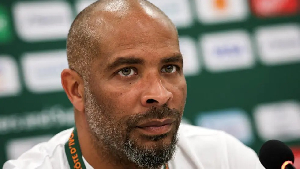Health News of Monday, 5 December 2022
Source: www.punchng.com
Increase commitment to ending HIV, group tells govt
The National Coordinator of the Network of People Living with HIV/AIDS in Nigeria, Abdulkadir Ibrahim has urged the government at all levels to increase their commitment to the fight against HIV.
Ibrahim, who spoke at a press briefing held in Abuja on Friday in commemoration of the 2022 World AIDS Day, urged the government to release funds to the National Agency for the Control of AIDS, and the National AIDS and STDs Control Programme at the national level, and to the State Agencies for the Control of AIDS and State AIDS and STI control programme to enable them to fulfil their obligations.
The theme for this year’s commemoration is ‘Equalize to End AIDS: Equal access to Treatment and Prevention services.’
The PUNCH reports that NEPWHAN also held a candlelight memorial to remember and pray for people that died as a result of HIV/AIDS.
The theme, the NEPWHAN boss said, highlights the need to provide and ensure equal access to treatment and prevention services for all, irrespective of gender, race, religion, age, or any other condition or parameter. It also recognises the need for sustainability of this access, especially on the part of the government, both at the national and state levels, concerning adequate budgeting and timely release of funds for HIV interventions in the country, including community interventions.
The NEPWHAN boss said the day is also an opportunity to harness the power of social change to put people first and ensure equal access for all, to close all existing gaps in treatment and prevention services, to end AIDS.
“Ending the AIDS epidemic by 2030 is possible, but only by closing the gaps between people who have access to HIV prevention, treatment, care, and support services and people who are being left behind. Equalising to end AIDS means empowering and enabling all people, everywhere, to access the services they need, and most importantly, putting the patient community at the centre of all interventions.
“To put the communities and networks at the centre of the response, if we want to end the AIDS epidemic as a public health threat by 2030, is not in contention. This, however, requires that we have tailored differentiated service delivery models to meet the different needs of PLHIV. Having community-based organisations plan, design, implement, monitor, and evaluate programmes allows for full ownership. Having communities and networks deliver services also allows for the implementation of rights-based and gender-sensitive programmes from the perspective of learned experiences.
“Peer supporters and mentor mothers are peer-led initiatives that put a human face to the HIV response. Patient literacy, adherence support, and tracking of lost-to-follow-up clients are critical ingredients for attaining sustained viral suppression. In short, having communities lead services allows for the identification of key barriers to the delivery of quality services, and to hold duty bearers accountable.
“We need to go granular and focus on the right populations and geographic areas with the greatest unmet needs for HIV prevention and treatment. We need to eliminate societal and structural barriers that drive the HIV epidemic. We must remove all punitive laws and policies, undertake law reforms that discriminalise key populations, reduce stigma and discrimination, and protects the human rights of PLHIV and key population, as well as eliminate inequalities associated with gender, gender-based violence, and other socio-economic issues.
“We need to be bold, we need to be brave, we need to be out there in our efforts to tackle the formidable obstacles that stand in the way of providing HIV services to those who need them most. These are all qualities abundantly demonstrated by some of our formidable partners, especially FHI360, PEPFAR, UNAIDS, and NACA. There are, of course, lots of other partners I cannot mention all,” he noted.
He added that the organisation aims to scale up effective and efficient HIV programmes in Nigeria to end AIDS as a public health threat by 2030.












